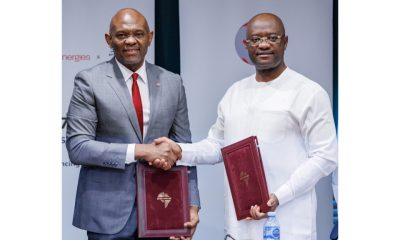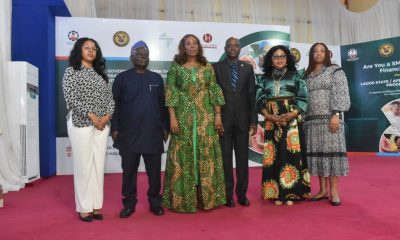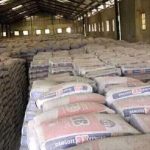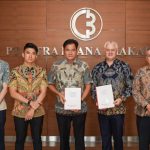Economy
Anambra Targets $200m Debt Financing
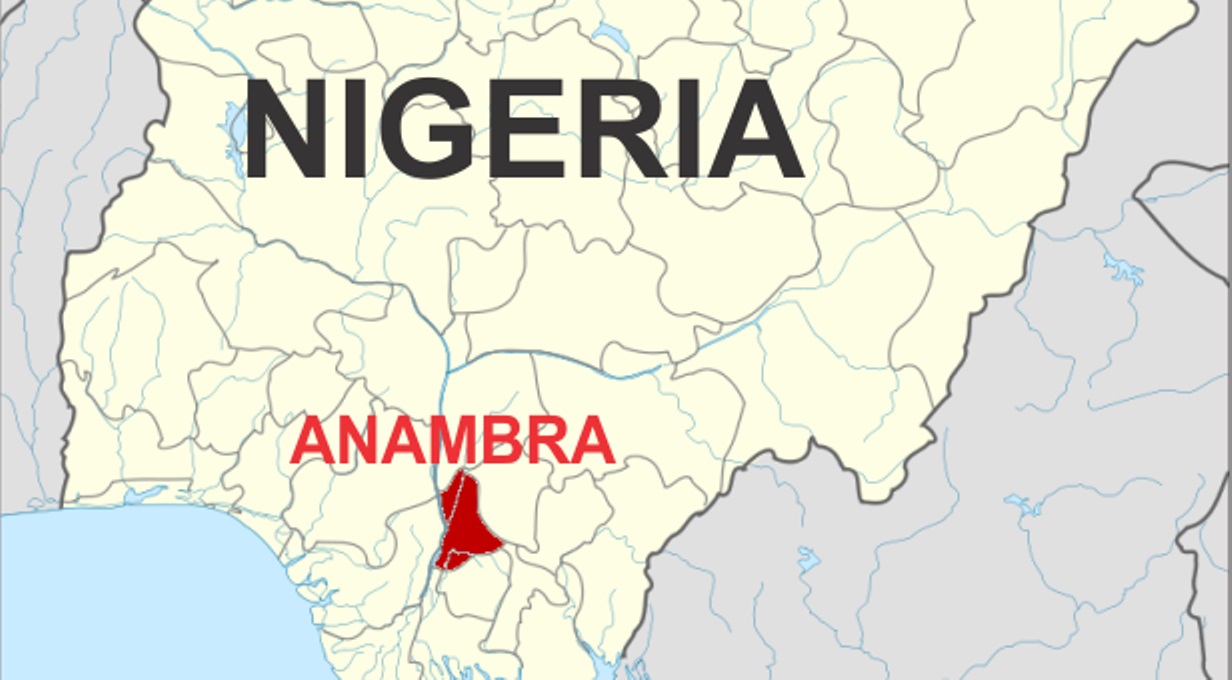
By Adedapo Adesanya
Anambra State and the African Export-Import Bank (Afreximbank) have signed a memorandum of understanding (MOU) to collaborate on the development of the Southeast state through the provision of project preparation and advisory services, including a potential debt financing programme of up to $200 million.
Under the terms of the MOU signed by Mrs Kanayo Awani, Afreximbank’s Executive Vice President, Intra-African Trade Bank, and Mr Charles Soludo, Governor of Anambra State, during the Anambra Investment Summit, Afreximbank and the state government will jointly prioritise strategic projects for preparation and funding, collaboratively evaluating each project to formulate a time-bound work programme for effective execution.
Afreximbank will work with the state government to establish bankability for key projects, including the Ikenga Mixed-Use Industrial City, the Anambra Export Emporium and the Akwaihedi Unubi Uga Automotive Industrial Park, as well as any other project agreed upon by the parties.
Afreximbank and the state government will also conclude all prerequisite actions necessary for securing a financing programme of up to $200 million from Afreximbank and its affiliated entities for the projects contingent upon the conclusion of a substantive agreement between the parties.
In addition, the MoU provides for the parties to collaborate on trade and investment promotion in Anambra State through the African Sub-Sovereign Governments Network (AfSNET) and facilitate the implementation of the African Continental Free Trade Agreement (AfCFTA).
The Cairo-based bank will work with the Anambra State Investment Promotion and Protection Agency to provide training and capacity building on trade and investment, undertake investment forums, identify and prepare strategic trade and investment projects and foster collaboration between sub-sovereign governments in Africa. The AfSNET network is expected to facilitate direct exchange of information and peer learning from sub-sovereign governments in Africa.
Other areas of collaboration covered in the MoU include the provision of transaction advisory services aimed at facilitating the procurement of debt and equity capital. It will also focus on export development advisory, twinning services, and senior debt structuring.
In an address to the summit, Mrs Awani, speaking on behalf of Mr Benedict Oramah, President and Chairman of the Board of Directors, said that Afreximbank’s mission aligned seamlessly with Anambra’s industrialization objectives, including its vision for a smart mega city, noting that the bank had identified the emergence of industrial parks and special economic zones as a strategic priority to accelerate Africa’s industrial infrastructure development.
“These facilities do not only optimize capital deployment but also drive economies of scale and nurture ecosystem development,” she said. “They also enable the use of otherwise inaccessible technologies and cutting-edge infrastructure”.
Noting that such projects required substantial funding, she said that innovative partnerships, including public-private partnerships, had emerged as instrumental bridges capable of closing the infrastructure gap that spanned the African continent, adding that the African private sector held immense potential to bolster a wide spectrum of public sector endeavours.
“Just as we have championed the transformative potential of industrial parks and special economic zones across Africa through public and private sector collaboration, committing over $1.5 billion so far to the realization of these projects, Afreximbank is ready to support Anambra State, as it is doing in Ogun and Abia States (Enyimba Industrial City), to promote similar projects here,” Mrs Awani continued.
“With peace and security gradually returning to the state, with our youth beginning to realize that their future cannot thrive in an environment of widespread insecurity, we can look forward to a similar $400 million industrial park project in collaboration with the state.
“It makes business sense to do so, and we have advanced discussions with Anambra State Investment Promotion and Protection Agency (ANSIPPA) to implement creating over 10,000 jobs while bringing export-oriented businesses to Anambra state,” she added.
The bank, leveraging its fundraising capabilities in Africa’s capital markets, could also raise funds that could be deployed into impactful infrastructure projects in the state using various financing instruments and mechanisms which could be explored with the state government, she noted.
She announced that the bank was implementing AfSNET, a platform for sub-sovereign governments throughout Africa to promote economic development and encourage intra-African trade and investment by allowing collaboration between the public and private sectors, facilitating peer learning, and allowing Afreximbank to take its products and services to the grassroots, where trade and investment actually take place.
She also announced that Afreximbank’s broader collaboration with Nigeria had been fruitful over the years and had seen the Bank invest over $36 billion into the Nigerian economy since its creation in 1993. Afreximbank flagship projects currently underway in Nigeria include the $300-million 500-bed Africa Medical Centre of Excellence in Abuja in partnership with King’s College, London, the Afreximbank Africa Trade Centre, also in Abuja, and the Africa Quality Assurance Centre in Shagamu, Ogun State, which is already operational.
Economy
Dangote Cement Assures African Consumers Sufficient Supply With 90MT Yearly
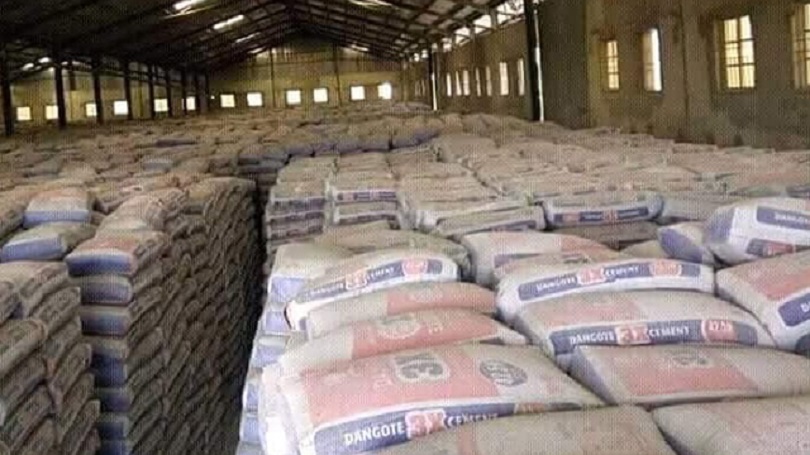
By Aduragbemi Omiyale
Leading cement maker, Dangote Cement Plc, has reaffirmed its commitment to making Africa fully self‑sufficient in cement production by raising its output to 90 million metric tonnes per annum by 2030 from the current 52 million metric tonnes per annum.
The chief executive of the firm, Mr Arvind Pathak, during a strategic briefing on the company’s expansion drive, disclosed that efforts are being made to accelerate investments across African markets to close supply gaps and support the continent’s infrastructural ambitions.
According to him, the organisation is strengthening the continent’s industrial backbone and reducing reliance on imported construction materials, stressing that, “Our vision is clear — to ensure Africa produces enough cement to meet its own needs…Through continuous expansion, operational excellence, and a strong distribution network, we are positioning Dangote Cement to power growth across the continent. We are not just building a business; we are building Africa’s future.”
“Through our collective determination, we have eliminated Nigeria’s dependence on imported cement and transformed the country into a net exporter of cement to several neighbouring nations,” Mr Pathak added.
Dangote Cement currently operates in multiple African countries, with integrated plants, grinding facilities, and distribution hubs strategically located to serve diverse markets.
The company’s ongoing projects include plant upgrades, capacity expansions, and the introduction of advanced energy‑efficient technologies designed to reduce operational costs and carbon footprint.
Reinforcing the company’s long-term vision, its founder, Mr Aliko Dangote, described self-sufficiency as both an economic imperative and a continental responsibility.
“Africa has no reason to depend on cement imports. We have the raw materials, the talent, and the determination. Our goal at Dangote Cement is to unlock Africa’s potential by ensuring that every nation on this continent can access affordable, high‑quality cement produced within Africa. This is how we build prosperity, job opportunities, and sustainable development,” the businessman stated.
Mr Dangote added that the company’s investments reflect its passion for unlocking continental competitiveness and fostering industrialisation across Africa.
With major infrastructural projects rising across African cities — from highways and bridges to housing developments — the demand for cement continues to grow. Dangote Cement’s renewed push toward continental self‑sufficiency is expected to address supply challenges, stabilise prices, and enhance construction reliability in the years ahead.
Economy
NASD OTC Bourse Appreciates Further by 0.46%

By Adedapo Adesanya
The NASD Over-the-Counter (OTC) Securities Exchange appreciated by 0.46 per cent on Friday, February 6, with the market capitalisation expanding by N10.2 billion to N2.207 trillion from the N2.197 trillion quoted in the previous session, while the NASD Unlisted Security Index (NSI) grew by 17.06 points to 3,689.72 points from the previous session’s 3,672.66 points.
The expansion was buoyed by the price appreciation recorded by two securities, which overpowered the declines recorded by four securities.
Central Securities Clearing System (CSCS) increased its value during the session by N4.83 to N53.50 per unit from N48.67 per unit, and IPWA Plc gained 19 Kobo to sell at N2.36 per share versus Thursday’s closing price of N2.17 per share.
On the flip side, Okitipupa Plc lost N10.77 to trade at N220.00 per unit compared with the previous price of N230.77 per unit, FrieslandCampina Wamco Nigeria Plc depreciated by N3.10 to N60.00 per share from N63.10 per share, Geo-Fluids Plc shed 45 Kobo to close at N4.30 per unit versus N4.75 per unit, and Industrial and General Insurance (IGI) weakened by 5 Kobo to 54 Kobo per share from 59 Kobo per share.
A look at the trading data showed that there was a 67.9 per cent drop in the volume of trades to 384,784 units from 1.2 million units, but the value of transactions went up by 33.5 per cent to N16.1 million from N12.0 million, and the number of deals increased by 4.4 per cent to 24 deals from 23 deals.
CSCS Plc ended the day as the most traded stock by value on a year-to-date basis with 16.3 million units exchanged for N667.6 million, followed by FrieslandCampina Wamco Nigeria Plc with 1.8 million units sold for N117.9 million, and Geo-Fluids Plc with 12.4 million units worth N79.5 million.
CSCS Plc also closed the session as the most active stock by volume on a year-to-date basis with 16.3 million units valued at N667.6 million, followed by Mass Telecom Innovation Plc with 13.7 million units worth N5.5 million, and Geo-Fluids Plc with 12.3 million units traded for N79.5 million.
Economy
CAC Deregisters 400,000 Inactive Businesses in 2025

By Adedapo Adesanya
The Corporate Affairs Commission (CAC) has deregistered more than 400,000 inactive companies from the corporate registry in 2025 as part of reforms aimed at strengthening transparency, protecting the economy and restoring investor confidence.
The Registrar-General of the CAC, Mr Hussaini Magaji, disclosed this on Saturday in Abuja during the commission’s monthly fitness walk, which was organised as part of the activities marking its 35th anniversary.
Mr Magaji said the affected entities were largely companies that had failed to file statutory annual returns for years and were no longer operational, warning that such firms posed serious risks to economic integrity.
He said, “In 2025 alone, we deregistered over 400,000 companies from our records. These were largely companies that had become inactive and failed to meet statutory obligations, including filing annual returns.
“Such entities pose threats to economic operations. Cleaning up the register was necessary to build confidence and ensure that Nigeria has a credible and reliable corporate registry,” he stated.
Mr Magaji explained that a transparent and up-to-date register was critical to attracting both local and foreign investment, as well as preventing the misuse of corporate structures for illicit activities.
The CAC boss described the anniversary fitness walk as symbolic, noting that it reflected the commission’s resilience, teamwork and institutional evolution since its establishment in 1991.
He recalled that the commission began operations as a largely manual agency, once confined to a single office in Garki, Abuja, but has since evolved into a fully digital, end-to-end service provider with global reach.
“The CAC has come a long way, from manual operations in one location to a fully digital organisation. Today, our services are available anywhere, anytime, 24/7. We are the only government agency providing end-to-end digital services,” he stated.
According to him, the commission’s digital transformation has significantly supported the Federal Government’s ease-of-doing-business reforms, eliminating the need for physical visits to CAC offices to register or manage businesses.
“You can register and manage your business from your room without stepping into any CAC office. That is what ease of doing business truly means,” he added.
As part of its support for small businesses, Mr Magaji disclosed that the commission partnered with the Small and Medium Enterprises Development Agency of Nigeria to facilitate the free registration of 250,000 MSMEs in 2025.
He explained that the registrations were deliberately channelled through SMEDAN to ensure beneficiaries also received training and capacity-building support, adding that improved welfare, timely payment of entitlements and clear career progression had boosted staff morale and service delivery.
-

 Feature/OPED6 years ago
Feature/OPED6 years agoDavos was Different this year
-
Travel/Tourism9 years ago
Lagos Seals Western Lodge Hotel In Ikorodu
-

 Showbiz3 years ago
Showbiz3 years agoEstranged Lover Releases Videos of Empress Njamah Bathing
-

 Banking8 years ago
Banking8 years agoSort Codes of GTBank Branches in Nigeria
-

 Economy3 years ago
Economy3 years agoSubsidy Removal: CNG at N130 Per Litre Cheaper Than Petrol—IPMAN
-

 Banking3 years ago
Banking3 years agoSort Codes of UBA Branches in Nigeria
-

 Banking3 years ago
Banking3 years agoFirst Bank Announces Planned Downtime
-

 Sports3 years ago
Sports3 years agoHighest Paid Nigerian Footballer – How Much Do Nigerian Footballers Earn




